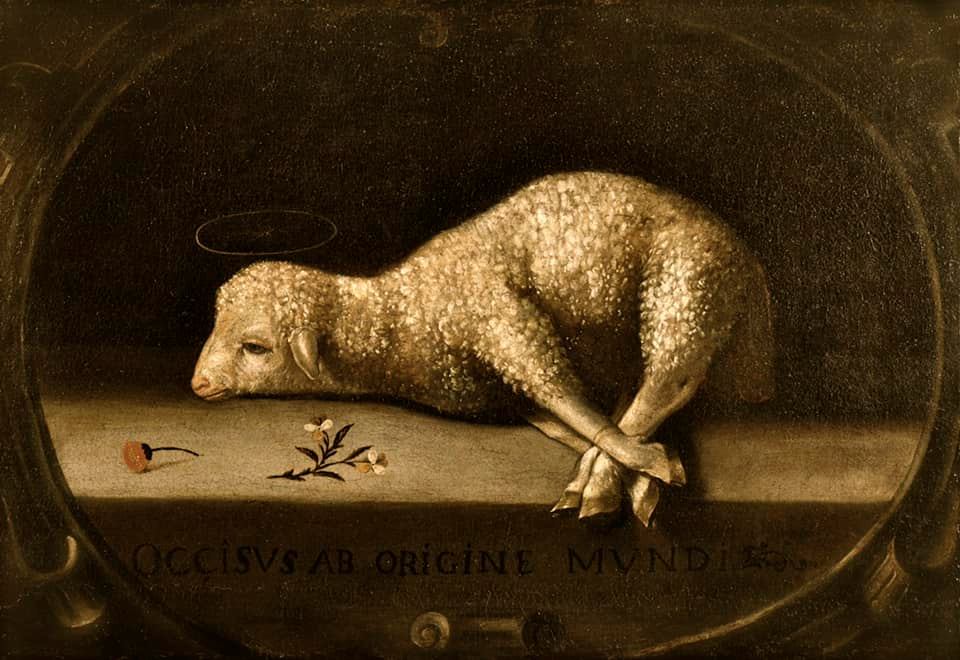 Gospel of 27 May 2020
Gospel of 27 May 2020
Wednesday of the Seventh Week of Easter
John 17:11-19
Father, keep those you have given me true to your name
Jesus raised his eyes to heaven and said: ‘Holy Father, keep those you have given me true to your name, so that they may be one like us. While I was with them, I kept those you had given me true to your name. I have watched over them and not one is lost except the one who chose to be lost, and this was to fulfil the scriptures. But now I am coming to you and while still in the world I say these things to share my joy with them to the full. I passed your word on to them, and the world hated them, because they belong to the world no more than I belong to the world. I am not asking you to remove them from the world, but to protect them from the evil one. They do not belong to the world any more than I belong to the world. Consecrate them in the truth; your word is truth. As you sent me into the world, I have sent them into the world, and for their sake I consecrate myself so that they too may be consecrated in truth.’
Reflexion
Our Lord reminded us yesterday that we belong to God and today He reinforces that point by saying that we do not belong to the world. This is the reason why He pleads with the Father to consecrate us in the truth.
What does He mean by consecration? The language of consecration is characteristic of the liturgy and the priesthood. The meaning of the word is to sanctify; to set apart from the ordinary to be dedicated in the special service of God. To consecrate, as the Latin root word suggests, is to make holy: consecration and holiness are the same; to consecrate oneself is to sanctify one’s life, to grow in holiness.
And so in the third petition of His priestly prayer, Jesus asks the Father to consecrate the disciples in the truth. This is not the first time He speaks of a consecration. In fact, in the Gospel of John, Jesus speaks about three consecrations. The first consecration is the sending of the Son into the world by the Father (John 10:36). Jesus belongs totally to God and is sent out to all men and women to bring them into communion with the Father. We see in this consecration the mission which Christ receives from the Father, a mission He faithfully accomplishes.
Second, the Son consecrates Himself (John 17:19). The language used here is that of a sacrifice made to God. Jesus presents Himself as an acceptable and unblemished sacrifice. He does so by offering His life on the cross. And so we may say that the first consecration focuses on the Incarnation while the second on the Passion.
And today, our Lord adds the third consecration. He prays: “As you sent me into the world, I have sent them into the world, and for their sake I consecrate myself so that they too may be consecrated in truth.’” When Jesus says, “I consecrate myself”, He is speaking of going to the cross to complete His mission. Through His death on the cross, the disciples are drawn into and united with Jesus’ consecration and mission and sent into the world. Through this consecration, they have a share in Jesus’ holiness and in His priestly mission.
Although our Lord will no longer be in the world after His ascension, His disciples will still be in the world, and they are going to face its hatred in the forms of persecution, hostility and temptations. That is why Christians need to always remember that they do not belong to the world, but through Christ have been consecrated to God. God’s protection will preserve them.
Being consecrated to the truth is a constant reminder to us to remain faithful to Christ, who is our only hope. For only He can protect us from the “evil one.” That is why Christ prays that the Father will keep us true to His name. Fidelity means that Christian faith must be lived through the highs and lows, tribulations and joys, and victories and defeats of life. As St Teresa of Kolkata was fond of saying, “Christ calls us to be faithful, not successful.”
At every Eucharist, the priest consecrates the bread and wine, Christ consecrates Himself for us. We who participate in Holy Communion made possible by our Lord’s self sacrifice on the cross, and deepened by the Eucharist, are consecrated to Him and this consecration sustains us in our mission. And so here’s a simple formula: if we remain faithful to the Eucharist, we will remain faithful to Christ’s mission.
